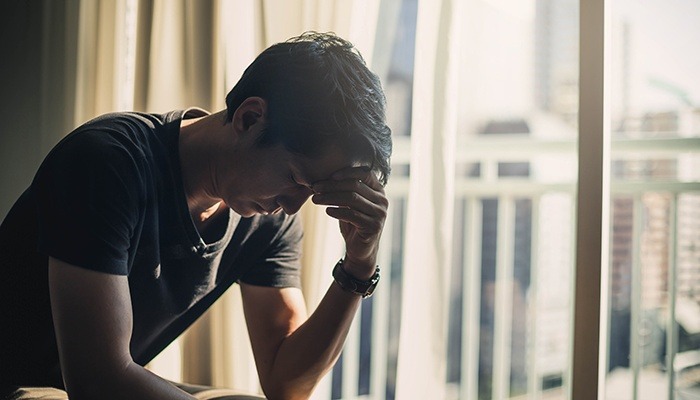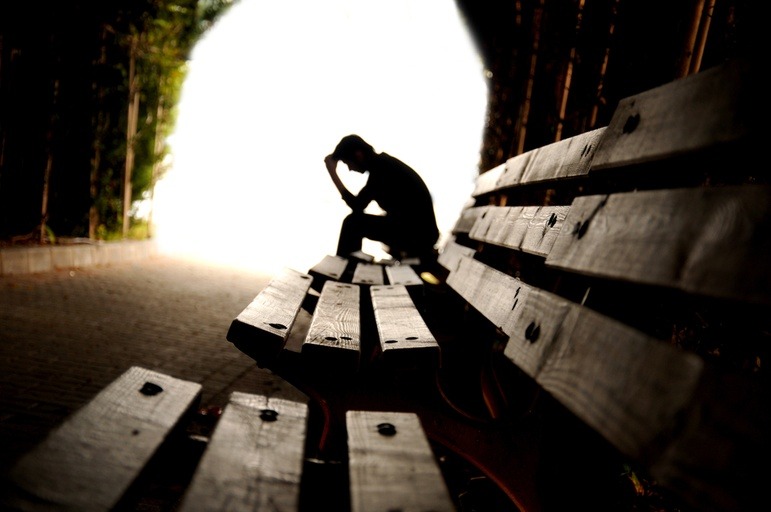Blacking out from drinking is so dangerous for several reasons, mainly related to the significant impairment of the brain’s ability to function normally. When someone experiences a blackout, they are undergoing a form of amnesia during which the brain is unable to form new memories. This state of anterograde amnesia happens because excessive alcohol intake inhibits the hippocampus, the part of the brain responsible for creating and storing memories.
Blackout drunk describes memory loss from heavy alcohol intake. Excessive drinking inhibits the hippocampus, the brain’s memory center, preventing events during intoxication from moving from short-term to long-term storage, resulting in ‘blackouts’. This can be dangerous because the person does not know what they are doing and could hurt themselves or someone else.
There are many symptoms of an alcoholic blackout including slurred speech, stumbling, loss of balance, and vomiting. If you think you or someone you know is blackout drunk, it is important to get help immediately. Treatment for a drunk blackout usually includes therapy and support groups.
California sees the nation’s highest number of alcohol-related deaths but has a low rate of underage drinking. 11,026 annual deaths were attributable to excessive alcohol use. 71.2% of these deaths are male. 60.0% of deaths are due to chronic causes, such as Alcohol Use Disorder.
What Happens When You Blackout From Drinking?
When someone blacks out from drinking, they may appear to be awake and alert, but often will not be able to remember what happened during that night out. Witnessing someone you know blackout drunk can be frightening. They may seem like a completely different person. Blackouts can last for a few hours or even days.
A blackout is different from passing out. When someone passes out, they become unconscious and cannot be awakened. During a blackout, a person remains conscious but cannot remember what happened.
What Causes Someone to Blackout?
Alcohol prevents the brain from forming memories by interfering with an important brain chemical called glutamate. Glutamate helps the brain form long-term memories. How quickly alcohol is consumed plays a role in whether or not someone will blackout. Drinking hard liquor on an empty stomach can also lead to blackout drinking.
How Does Being a Blackout Drunk Affect the Brain?

When a person drinks too much alcohol, it can cause the brain to become severely dehydrated. This can lead to cell death and damage to the brain. Therefore, being a blackout drunk can also cause changes in the way the brain processes information and can lead to memory problems.
How Do I Know If I Am Blackout Drunk?
Several signs may indicate that a person is blackout drunk. These include:
- Inability to remember what happened while drinking
- Sudden changes in behavior
- Irrational or aggressive behavior
- Inability to stand or walk
- Slurred speech
- Nausea or vomiting
What Are the Different Types of Blackouts?
There are two types of blackouts that can occur from drinking too much alcohol. These are
Fragmentary Blackout
This is when a person can remember some parts of the night but not others. They may be able to recall certain events but not how they got there or what happened in between.
En Bloc Blackout
This is when a person cannot remember anything at all about the night. They will have no memory of what happened, where they went, or who they were with.
What Are the Risks of Being a Blackout Drunk?
Being a blackout drunk can be extremely dangerous and has been linked to several risks, such as
Accidents
A blackout drunk may put themselves in danger by walking home alone or driving a car. They may also engage in risky behavior, such as unprotected sex, which can lead to accidents or STDs.
Violence
A blackout-drunk person may become aggressive or violent. They may start fights or harm themselves or others.
Memory Problems
A blackout-drunk person may have difficulty remembering what happened during the blackout. This can lead to legal problems if they are accused of a crime.
Death
In extreme cases, blackout drinking can lead to alcohol poisoning, which can be fatal.
How to Avoid Blackout Drinking
If you want to avoid blackout drinking, there are some steps you can take, such as:
Limit Your Alcohol Intake
Make sure you have one drink every hour and make sure you eat food while you are drinking.
Avoid “Drinking Games”
These often involve drinking large amounts of alcohol in a short time, which can lead to blacking out.
Pace Yourself
Sip your drinks slowly and take breaks in between. This will help you avoid drinking too much too quickly.
Know Your Limit
Every person’s tolerance for alcohol is different, so know how much you can drink before you start to feel the effects.
Make Sure You Have a Safe Way to Get Home
If you are going to be drinking, make sure you have a designated driver or another safe way to get home. Do not drink and drive.
If you or someone you know has a problem with alcohol, please seek help. There are many resources available to those struggling with alcoholism, and recovery is possible. Being blackout drunk can be very dangerous and should not be taken lightly. If you or someone you know is struggling with alcoholism, please reach out for help.
How Is Being a Blackout Drunk Different From Binge Drinker?
 Being blackout drunk is generally considered to be when a person drinks enough alcohol within 2-3 hours to raise their Blood Alcohol Concentration (BAC) to 0.15%. This usually results in a loss of consciousness for at least a short while. Blackout drinking can also be classified by the number of drinks consumed within a certain amount of time.
Being blackout drunk is generally considered to be when a person drinks enough alcohol within 2-3 hours to raise their Blood Alcohol Concentration (BAC) to 0.15%. This usually results in a loss of consciousness for at least a short while. Blackout drinking can also be classified by the number of drinks consumed within a certain amount of time.
Binge drinking is defined as:
- Four or more drinks in two hours for women
- Five or more drinks in two hours for men,
For example, heavy drinking is defined as eight or more drinks a week for women and 15 or more drinks a week for men. While blackout drinking can occur during either of these behaviors, it generally happens during binge drinking.
This is because blackout drinking requires a high blood alcohol concentration (BAC), which is more likely to occur when someone is consuming large amounts of alcohol in a short amount of time. Blackout drinking can also happen without binge drinking. This usually occurs when someone has been drinking heavily over time and their BAC gradually builds up over time.
Between 80% and 90% of people celebrating their 21st birthday consume alcohol. Males are consistently twice as likely to report excessive alcohol use than females. The measurement of “hours since last drink” is used most often in research to classify an alcoholic blackout.
What Is Memory Loss and How Does Blackout Drinking Trigger This?
Memory loss can be best described as forgetting. Being an alcoholic blackout can cause memory loss because it impairs the brain’s ability to form new memories. This is why people who black out often cannot remember what they did while they were drinking.
Being blackout drunk can also cause flashbacks, which are when a person relives a past event that was traumatic or stressful. Substances like alcohol can trigger flashbacks because they change the way the brain processes information.
What Makes Being an Alcoholic Blackout Dangerous?
Being blackout drunk is dangerous because it can lead to risky behaviors such as driving while intoxicated or engaging in unprotected sex. Being blackout drunk can also lead to long-term health problems such as liver damage and brain damage.
Blackout-drunk people are at risk for serious injuries, including
- Car accidents
- Falls
- Drowning
- They may also become victims of violence
Which Alcohol Leads to Blackout Drinking?
For example, hard liquors like vodka, whiskey, and rum are more likely to cause blackout drinking than beer or wine. This is because hard liquors contain more alcohol than beer or wine.
Many factors contribute to blackout drinking. These include:
- The type of alcohol consumed
- How much alcohol is consumed
- How quickly the alcohol is consumed
- If the person has eaten before or during drinking
- The person’s age, weight, and gender
Who Is Most at Risk of Becoming a Blackout Drunk?
Blackout drinking is most common in young adults, although it can happen to anyone who drinks too much alcohol. People who are struggling with alcoholism or who have a family history of alcoholism are also more likely to blackout when they drink.
What Are the Symptoms of Blackout Drinking?
The symptoms of blackout drinking can vary from person to person. However, some common symptoms include:
- Memory loss
- Confusion
- Difficulty speaking
- Loss of coordination
Blackout drinking can also lead to problems in personal relationships, job loss, and legal trouble. It is important to seek help if you or someone you know is struggling with this problem. This can be a dangerous situation because the person may not be aware of their surroundings and could injure themselves or others.
Are There Withdrawal Symptoms From Blackout Drinking?
Yes. blackout drinkers may experience withdrawal symptoms when they try to stop drinking or cut back on their drinking. These symptoms can include:
- Anxiety
- Depression
- Irritability
- Trouble sleeping
- Sweating
- Shaking
- Nausea
- Vomiting
- Headaches
Drinking alcohol causes the brain to release a chemical called dopamine. This chemical is responsible for the pleasurable effects of alcohol. However, too much dopamine can lead to blackout drinking. When this happens, the brain is unable to process information correctly. This can lead to memory problems and difficulty thinking clearly.
Blackout drinking can also cause damage to the liver. The liver is responsible for filtering toxins out of the body. When it is damaged, these toxins can build up in the body and cause health problems.
How Does Being a Blackout Drunk Impact Young Adults?
Young adults might be pressured by their peers to blackout drink as a way to show that they are “fun” and can “handle their liquor.” Being a blackout drunk can have consequences such as
Injuries
A blackout drinker is more likely to take risks and engage in risky behaviors, which can lead to injuries.
Unsafe Sex
Blackout drinkers might have unprotected sex, leading to sexually transmitted diseases or unwanted pregnancies.
Car Accidents
Blackout drinkers are more likely to get into car accidents because of their impaired judgment and motor skills.
Alcohol Poisoning
Blackout drinkers are at risk for alcohol poisoning, which can be fatal.
Assault
Blackout drinkers might be more likely to become victims or perpetrators of assault because of their impaired judgment and motor skills.
Can Blackout Drinking Lead to Alcohol Poisoning?
 Alcohol poisoning is a serious and potentially fatal consequence of blackout drinking. When someone drinks too much alcohol, their bodies can’t process it all, and it builds up in their system. This can lead to dangerous and even life-threatening symptoms, including
Alcohol poisoning is a serious and potentially fatal consequence of blackout drinking. When someone drinks too much alcohol, their bodies can’t process it all, and it builds up in their system. This can lead to dangerous and even life-threatening symptoms, including
- Vomiting
- Seizures
- Slow or irregular breathing
- Low body temperature
- Blue skin
- Unconsciousness
If you or someone you know is exhibiting these symptoms, it’s important to seek medical help immediately. Alcohol poisoning can be treated, but it can also be fatal if not caught in time.
How Can I Prevent Blackout Drinking?
There are a few things you can do to prevent blackout drinking:
Drink Slowly
If you’re going to drink, make sure to take your time. Sipping slowly will help your body process the alcohol better and prevent you from drinking too much too fast.
Eat Before You Drink
Having food in your stomach will help slow down the absorption of alcohol into your system.
Avoid Hard Liquor
Stick to beer or wine, which have a lower alcohol content than hard liquor.
Drink Water in Between Alcoholic Beverages
This will help keep you hydrated and prevent you from becoming too intoxicated.
What Are the Treatment Options for Blackout Drinking?
If you or someone you know is struggling with blackout drinking, there are treatment options available. Treatment for blackout drinking typically involves a combination of therapy, medication, and support groups.
Therapy
is an essential part of treatment for blackout drinking. Therapy can help identify the underlying causes of blackout drinking and develop healthy coping mechanisms. Therapy can be conducted individually, in a group setting, or with family members.
Medication
can help manage withdrawal symptoms and cravings associated with blackout drinking. Medication should be prescribed by a doctor or other medical professional.
Support Groups
Support groups can provide emotional support and accountability for people struggling with blackout drinking. Support groups are available through Alcoholics Anonymous, Al-Anon, and other organizations.
Find Quality Support at Westwind Recovery®
After months of batting being a blackout drunk, you’ve finally decided to enter treatment. Addiction recovery is a new opportunity for you to uncover the reasons behind your substance use. The road ahead requires your determination. But, you don’t have to go through it alone.
At Westwind Recovery®, we provide evidence-based individualized treatment for alcoholism and co-occurring disorders. Our unique alcohol detox program uses an integrative approach that addresses the physical, mental, and emotional aspects of your addiction.
We understand that every client is different. That’s why we offer a range of therapy modalities such as cognitive behavioral therapy, dialectical behavior therapy, and eye movement desensitization reprocessing therapy. We also place a strong emphasis on family involvement in the recovery process.
Westwind Recovery® offers a wide variety of inclusive treatment programs and therapies to preserve your mind, body, and soul. Our comprehensive services are designed to meet your needs. If you or someone you know is struggling with addiction, reach out to our facility today.

Dr. Deena is the Chief Clinical Officer of Westwind Recovery®, an award-winning outpatient treatment center in Los Angeles where she oversees the clinical and administrative program and treatment methods. Dr. Deena is a doctor of psychology and licensed clinical social worker since 1993. LCSW #20628. Originally from the East Coast, Dr. Deena has worked running treatment centers, worked as a therapist in psychiatric hospitals as well as school settings and currently has a thriving private practice in the LA area. Dr. Deena has appeared regularly on the Dr. Phil Show as an expert since 2003. She has also been featured on many other TV shows, podcasts and has contributed to written publications as well as podcasts.




